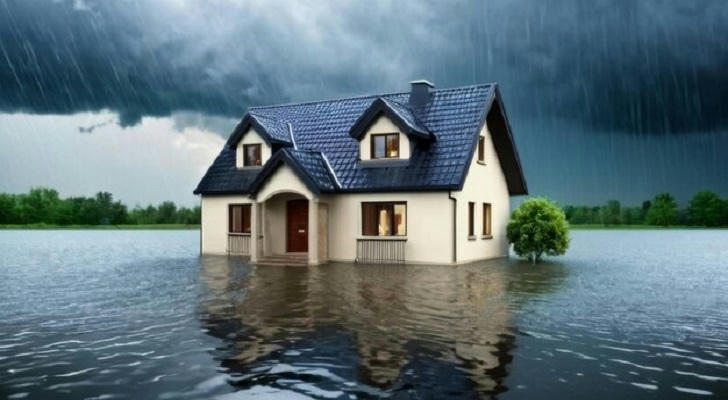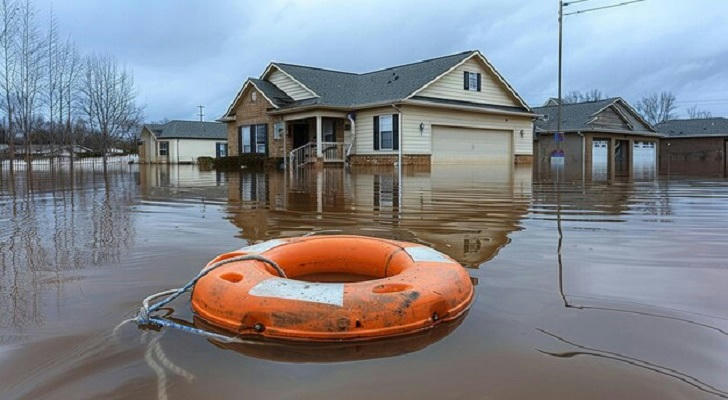The Ultimate Guide to Saving Money on Home Insurance: Expert Advice

Saving money on home insurance is a crucial aspect of managing your household expenses. With the right strategies, you can significantly reduce your insurance premiums without compromising on the coverage you need. From shopping around for the best rates to making your home more disaster-resistant, there are several ways to save money on home insurance. Here are some effective tips to get you started:
Don’t suffer any loss by shopping around
This will take some time, but it can save you a significant amount of money. Ask your friends, search the yellow pages, or contact your state's insurance department. The National Association of Insurance Commissioners can provide information to help you choose an insurance company in your state and also handles complaints. The government usually provides the insurance rates of major insurance companies, and some states also provide the frequency of customer complaints against insurance companies.
Check the financial stability of the insurance companies you're considering through professional rating companies such as A.M. Best, Standard & Poor's, and Consumer Reports. When you've narrowed down your options to three insurance companies, you can ask them to provide quotes.
Raise Your Deductible
The deductible is the amount you must pay out of pocket before your insurance company starts paying for a loss. A higher deductible means you'll save more on insurance costs. Most insurance companies recommend a deductible of at least $500. If you can raise your deductible to $1,000, you'll save 25% on insurance costs. However, if you live in an area prone to disasters, it's best to have a separate deductible for those types of losses. If you live on the East Coast, you may want to have a separate deductible for storm damage; if you live in an area prone to hail storms, you may want to have a separate deductible for hail damage; and if you live in an earthquake-prone area, you may want to have a separate deductible for earthquake damage.
Don't Include the Value of the Land
The land under your house is not at risk of theft, storms, fire, and other risks covered by your homeowners insurance policy. So, when deciding on the amount of insurance, don't include the value of the land. If you do, you'll end up paying more for insurance than you need to.
Buy Multiple Policies from the Same Company
If you buy two or more policies from the same insurance company, you may be eligible for a 5% to 15% discount on your insurance costs. However, you need to make sure that the total cost of the policies is lower than buying separate policies from different companies.
Make Your Home More Disaster-Resistant
Ask your insurance agent or insurance company representative for ways to make your home more resistant to storms and other natural disasters. You may be able to save on insurance costs by installing storm shutters, reinforcing your roof, or buying stronger roofing materials. Older homes can be retrofitted to make them more earthquake-resistant. Additionally, you can reduce the risk of fire and water damage by modernizing your heating, plumbing, and electrical systems.
Improve Your Home Security
You can usually get a discount of at least 5% by installing smoke detectors, burglar alarms, and deadbolt locks. Some insurance companies may offer discounts of 15% to 20% if you install advanced sprinkler systems and burglar alarms that alert the police, fire department, or monitoring station in case of an emergency. However, these systems can be expensive, and not all systems qualify for discounts. So, before you buy these systems, make sure to check with your insurance company to see which systems they recommend and how much you'll save on insurance costs.
Look for Other Discounts
Insurance companies offer various discounts, but they may not offer the same discounts or discount amounts in all states. For example, because retirees are at home more often than working people, they are less likely to be burglarized and more likely to spot fires early. Retirees also have more time to maintain their homes. If you're retired and over 55, you may be eligible for a discount of up to 10% from some insurance companies. Some employers and professional associations may offer better insurance policies through group plans.

Maintain a Good Credit Record
Establishing a good credit record can lower your insurance costs. Insurance companies are increasingly using credit information to price homeowners insurance. In most states, your insurance company must notify you of any adverse actions, such as higher rates, and you should verify the accuracy of the information. To maintain a good credit record, pay your bills on time, avoid unnecessary loans, and keep your credit balances low. Check your credit record regularly and correct any errors to ensure it's accurate.
Stick with the Same Insurance Company
If you've been with the same insurance company for several years, you may be eligible for a discount as a long-term policyholder. Typically, if you've been with the same insurance company for three to five years, you'll receive a 5% discount on your insurance costs; if you've been with the same company for six years or more, you'll receive a 10% discount. However, you should regularly compare the price with other insurance companies' policies to make sure you're getting the best deal.
Review Your Policy Annually
You want your policy to cover any valuable possessions or your home, but you don't want to pay for coverage you don't need. If you bought a fur coat five years ago that's no longer worth the $5,000 you paid for it, you may want to reduce or cancel the coverage for that item and pocket the difference.
Consider Private Insurance Instead of Government Plans
If you live in a high-risk area prone to coastal storms, fires, or crime, and you've been buying insurance through a government plan, you may be able to negotiate with an insurance agent or insurance company to get a better deal. By doing so, you may be able to buy insurance at a lower price on the private market.
Consider Insurance Costs When Buying a Home
If the house you're considering is near a fire hydrant or in a community with a professional fire department rather than a volunteer department, you may pay lower insurance costs. Additionally, if the electrical, heating, and plumbing systems in the house are less than 10 years old, insurance costs will be lower. If you live in the East, a brick house may be a better choice because it's more resistant to wind damage. If you live in an earthquake-prone area, a wood-frame house may be a better choice because it's more resistant to earthquakes. Choosing the right house can lower your insurance costs by 5% to 15%.
Conclusion
Before you buy a house, make sure to review the property's claims history report. This report, which includes the property's insurance claims history, can help you identify potential problems with the house.
Standard homeowners insurance policies do not cover flood damage or earthquake damage. If you buy a house in a flood-prone area, you'll need to purchase a separate flood insurance policy, which costs an average of $400 per year. The Federal Emergency Management Agency (FEMA) provides useful information about flood insurance on floodsmart.gov. Most insurance companies offer separate earthquake insurance, and the cost depends on the likelihood of earthquakes in your area. In California, the California Earthquake Authority offers earthquake insurance.
